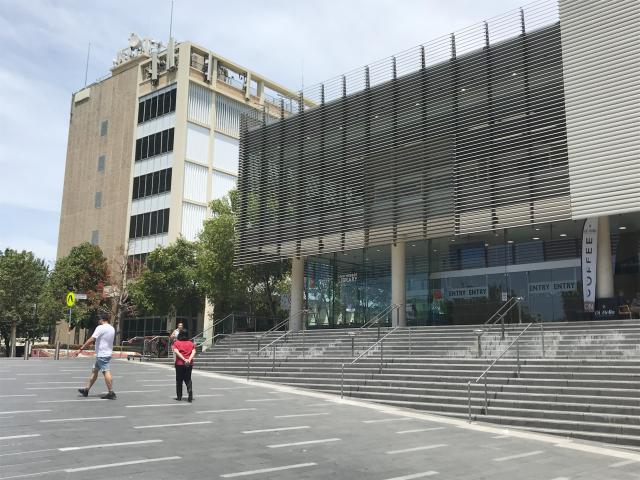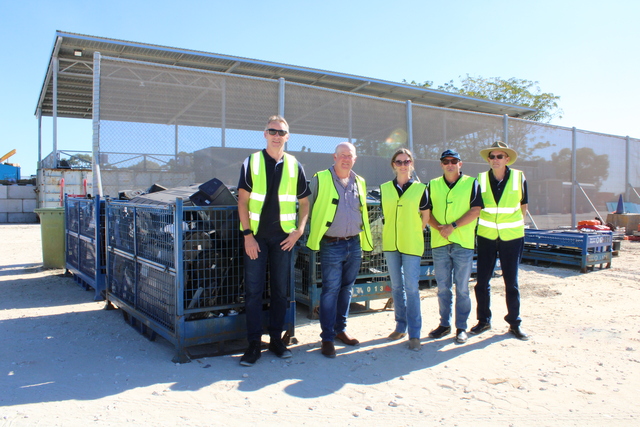The Western Sydney Regional Organisation of Councils (WSROC) has welcomed the announcement by the NSW Independent Pricing and Regulatory Tribunal (IPART) of long overdue reforms to its council rate-pegging methodology, the method by which council rates are capped.
“The proposed new rate peg methodology is both simpler and more realistic than the old method and will hopefully result in council rates that more accurately reflect the changing costs to councils of providing services to their communities,” said WSROC President, Councillor Barry Calvert.
WSROC, the peak body representing councils in the Greater Western Sydney region, has for the better part of half a decade been urging the State Government to review not only its rate-pegging methodology but to look more broadly at the financial resilience of Councils.
“We are particularly heartened by IPART’s statement that it would be timely for the NSW Government to initiate an independent investigation into the financial model for councils in NSW, including the broader issues highlighted in the Tribunal’s report on the rate peg methodology.
“To address long-term financial pressures and to deliver on community priorities, we especially need such an independent investigation to closely examine how Councils can achieve financial sustainability where community expectations are rising and the cost of providing services is increasing at a greater rate than revenue.
“In October 2019, the NSW Government’s independent, expert panel released a discussion paper, NSW Review of Federal Financial Relations, examining how the NSW and Commonwealth Governments can work to build a stronger economy, encourage state-led reform, and ultimately, deliver better value for taxpayers.”
WSROC has been urging the State Government for a similar review that should examine how all three levels of government can work together to build a stronger economy, encourage reform across all three levels of government, and ultimately, deliver better value for taxpayers and ratepayers.
“Particular focus should be given to finding a fairer, more efficient, and more reliable system of Commonwealth and State funding for local government,” said Councillor Calvert.
“We consider such an independent review could provide greater transparency of councils’ financial sustainability.
“A critical shortcoming of the NSW government’s 2019 discussion paper was its lack of focus on the part played by local government in delivering the services that communities need, and how councils’ financial relations with the state and federal governments impact the delivery of both infrastructure and services.
“In WSROC’s view, any review of the public sector’s capacity to deliver better outcomes for taxpayers and ratepayers must include local government; the primary delivery vehicle of many state and federal programs.
“Ad hoc, sometimes politically expedient, grants programs must be replaced by longer-term programs that are fair and equitable, and that ultimately deliver better community outcomes because Councils can plan better.
“Greater Western Sydney’s population is growing at such a rate that we will need to house more than one million additional people by 2036.
“As councils in Greater Western Sydney look to the future, the demands of population growth and other internal and external factors are putting ever greater financial pressure on them. Not the least of which is the constant cost-shifting from State to Local Government.
“They must also cope with a range of increased levies, such as the Emergency Services Levy, the introduction of State mandated services such as the introduction of FOGO waste services and the continually rising costs of asset maintenance.
“Western Sydney councils, like other councils around NSW, have been increasingly burdened by the expectation from state and federal governments that councils make a greater contribution towards program delivery.
“In addition, we have seen growing community expectations regarding services and infrastructure delivery, and in a growing region such as Western Sydney, these expectations far exceed what current funding mechanisms – in the form of rates, grants and developer contributions – can provide.
“Recent IPART and Productivity Commission reviews into local government, such as IPART’s ‘Review of Domestic Waste Management Charges’, have taken a piece-meal approach to local government funding, and this limited scope fails to capture ‘whole of business impacts’ or ‘whole of sector’ outcomes.
“Councils are especially sensitive to a growing liability for unfunded infrastructure – whether ‘social’, ‘green’ or ‘grey’ – especially in growth areas such as Western Sydney and significant and growing costs as the climate changes, populations age, technology advances and work patterns change.
“The demand for ever more housing also compounds other significant challenges our councils are dealing with including finding ways to ensure our communities have access to sustainable, reliable, and affordable energy; rebuild local infrastructure after recent disasters such as floods and bushfires; provide reliable and sustainable transport solutions, and so much more.
“While Western Sydney councils are determined to keep rates as low as possible, we are also required to deliver services and infrastructure that our communities expect and deserve.
“We simply cannot do this with a system that appears to be incapable of pre-empting or reacting to a rapidly changing economic landscape.”
“IPART has gotten it very right. It would be timely for the NSW Government to initiate an independent investigation into the financial model for councils in NSW, including the broader issues highlighted in the Tribunal’s report. It can’t come quick enough!”








